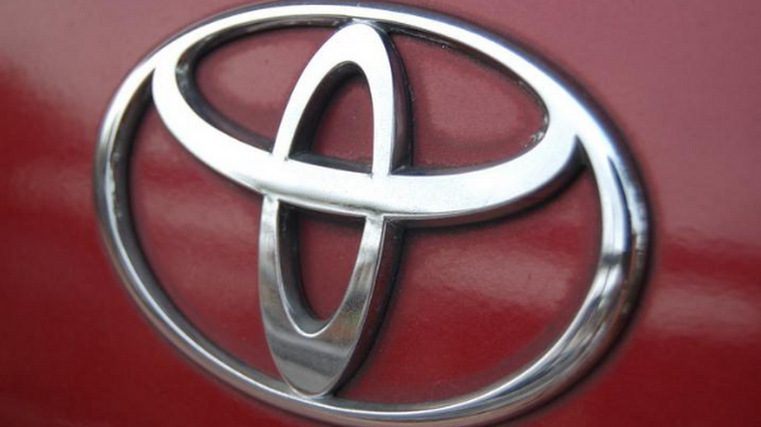Toyota works on new app

Toyota Financial Services is planning to launch a subscription service for people who want access to new vehicles without having to buy one.
The company is set to introduce an app for the scheme via its mobility services, it revealed at the unveiling of Toyota NZ’s latest sustainability report last month.
While the marque isn’t the first business in this country to start a vehicle subscription service, given Toyota is New Zealand’s most popular carmaker it could create a step-change in the automotive market.
The app is likely to merge different existing services into a single application, such as Toyota’s fleet-sharing Hydrogen Project and Electric Project, and its Ezi Rentals and Cityhop operations.
The new app-based service is likely to accommodate private individuals as well as operators of commercial fleets.
Brent Knight, chief executive of Toyota Financial Services, said the company is developing the access-based offering that compliments – or for some Kiwis even replaces – traditional motor-vehicle ownership.
For example, a Kiwi consumer opting to buy a large SUV who might only fully use it occasionally could book a smaller car through the app and swap into a larger model only when it’s required.
Commercial operations with large fleets could upgrade to newer, greener and safer models more affordably.
Such a service also allows people to book the likes of battery electric or fuel-cell vehicles for daily commutes before opting for longer-range cars, possibly including those with internal combustion engines, for weekend-long trips.
“Our ambition is to deliver an integrated transport solution,” Knight said at the launch of the sustainability report last month.
“It promotes more sustainable resource utilisation and can reduce the number of vehicles on the road. In some circumstances, shared vehicles can replace multiple privately owned cars, leading to lower emissions and reduced environmental impact.
“Access-based models also contribute to optimising efficient use of resources by ensuring vehicles are utilised more effectively.”
In simple terms, the idea is that instead of being tied to a single vehicle, consumers can choose the type of car that best suits their needs at any given time.
Traditional ownership involves upfront costs, ongoing maintenance and depreciation. In contrast, said Knight, with an access-based model consumers pay only for usage, which can result in lower overall costs.
Toyota already offers similar subscription services in other markets, but Knight hopes all the brand’s rideshare and services in this country will sit in a single digital hub. At the moment, Toyota NZ has all its existing services on six different apps, reports Stuff.
The bigger picture
Tatsuya Ishikawa, acting chief executive officer of Toyota NZ, says the company is exploring its role in the future of our passenger and light commercial fleet.
“While continuing to sell new and used vehicles, we are focusing on car utilisation and transitioning to a mobility company,” he explains. “This involves developing strategies for integrated transport solutions, shared-mobility services and smart technology.
“We foresee a future with fewer owners but more car-sharing, subscription services and autonomous vehicles. Autonomous taxis, like those in San Francisco, are becoming more common as regulations evolve.”
Kinto, Toyota Motor Company’s car-sharing service, operates in Europe and Japan. In China, it partners with Pony.ai to supply robotaxis, including 1,000 Toyota bZ4X units, in major cities.
Pony.ai’s fleet includes about 200 Toyota and Lexus robotaxis in that country’s tier-one cities for road tests and public operations.
“In New Zealand, we aim to adopt a similar structure focusing on collaboration, co-operation and connectivity to meet customer needs efficiently and sustainably,” says Ishikawa.
“We need short-term mobility options to ensure a stable energy supply and address environmental concerns.
“Balancing growth with providing mobility solutions for all, we aim to transition from a traditional car company to a mobility company.”
Sustainable future in NZ
Toyota NZ’s latest sustainability report, dubbed “driving New Zealand forward together”, details a framework that guides its vision “to preserve our great Kiwi lifestyle for future generations”.
It states: “We aim to provide mobility for all by offering sustainable products and services to customers. Mobility for all means working with other organisations to benefit society.
“But we must be mindful of the role mobility plays in decarbonising New Zealand for future generations.”
When it comes to economic impact, the company says it needs to balance growing its business with providing mobility for all by offering a range of products and services.
These include electrifying its product mix, having a multi-powertrain approach, providing affordable and accessible mobility, expanding its mobility offering with what the company describes as its “One Toyota alignment” and building a hydrogen economy.
Some of the key drivers on its roadmap to carbon neutrality in 25 years’ time include expanding mobility options – such as subscription – by 2030, and dominance of subscription and mobility-as-a-service models by 2050.
Although Toyota Financial Services (TFS) is a standalone business and wholly owned by Toyota Motor Company, it’s closely linked to Toyota NZ. They are increasingly working together on the strategic goals of mobility and community investment.
TFS provides a range of financial, fleet management and mobility services to customers via products such as finance, lease options and insurance, and car-sharing and renting through Cityhop and Ezi Car Rental.
The latter was bought by TFS in September 2023 “as a strategic acquisition”. It’s described as one of the country’s largest locally owned and operated rental companies with more than 2,500 units in its fleet, peaking at 4,500 during the summer.
As for the mantra of “mobility for all”, the Toyota Hydrogen Project car-share scheme, which was launched in May 2022, partnered with selected Kiwi brands to showcase the capabilities of this technology.
In 2024, Fletcher Building, AMI and Enviro NZ joined the scheme, which also provides hydrogen fuel cell-powered Mirai sedans to members and has started leasing these cars to commercial operators.
Also in May 2022, the company partnered with The Akina Foundation for its Waka Aronui pilot programme. This initiative provides affordable, low-emissions, leased vehicles to 20 Auckland whanau for a set fee per month.
The charge covers the lease, insurance, registration and an annual maintenance service for Toyota Fielder hybrid wagons.
Through the marque’s partnership with the foundation, the Waka Aronui social-leasing scheme continued to have a positive economic, social and environmental impact last year.
Waka Aronui continues to evolve. Toyota describes it as a “prime example of social-investment principles in action”.
The programme impacts four key areas. These are financial wellbeing, community connection, reduced carbon emissions and mental health. To read Toyota NZ’s latest sustainability report, click here.





